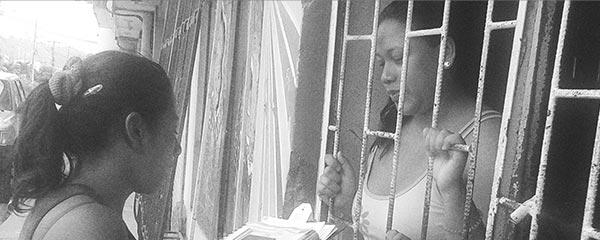For this year's edition of ║┌┴¤═°'s Conversations on International Women's Day, we focus on the experiences of four female interviewers in Asia: Kamala, Chamari, Sarnai and Boonsri. We have changed their names to protect their identities.
Kamala, 36, lives in Nepal, a multiethnic country that is home to the tallest mountains in the world, including Mount Everest. Chamari, 22, lives in Sri Lanka, an island country off the coast of India. Boonsri, 24, lives in Thailand in Southeast Asia and Sarnai, 27, lives in Mongolia in East Asia. All four do their interviews in person in these countries.
║┌┴¤═°: Aside from earning a paycheck, why do you do this type of work?
Kamala: I feel the data that I collect help create an understanding of how people in my country think and feel about their life, the place they live in, and the exposure they have to the outside world. It is amazing to see the changes in people's opinions over the years.
I realize how important my role is. This motivates me to give my 100% and to collect data in adherence to the methodology in any given circumstances.
Chamari: The study gives me an understanding of different viewpoints on social, economic and cultural aspects. It's interesting to see how people think and respond to different questions based on their background and experiences during their life. Also, I feel proud because I am able to contribute to a global survey.
║┌┴¤═°: Can you tell me about one of the toughest situations you've been in as an interviewer? What happened and what did you do?
Kamala: One of the toughest situations that I have been in while working in the field for World Poll was in 2015, when the devastating earthquake hit Nepal in April. It was a difficult time for me to go out to the field, leaving two small children at home for almost three weeks. However, I decided to go.
When we reached an area that was hit by the earthquake, we realized almost all the households had moved to makeshift arrangements outside. We did not know whether to conduct the interviews when people were away from their homes and when the fear and aftermath of the earthquake was still fresh.
It was a time when any stranger to the village would be seen as a donor bringing them relief, but since we were there for the survey, it was very difficult convincing people. We spoke to one of the active youths in the area and convinced him, explaining our methodology and how their opinions will help to illustrate the opinion of all Nepal. Once he was convinced, he helped us to complete our eight interviews.
Sarnai: When I go for interviews, I see so many things. Life in some households is difficult. Sometimes they have too many family members living under the same roof. Some people ask me if I can get a job for them. When I see all this, it gives me a heartache. I wish all these social problems would disappear.
║┌┴¤═°: How do you feel when you interview women in your country? How do you think they feel to be asked questions? Do they tell you?
Sarnai: The women are very detailed in answering the questions. Mongolian women have many children and, at the same time, they work and have to manage everything side by side. It often feels like women are better informed than their husbands.
Kamala: Women in this country spend most of their time doing chores in and around the house, but even with a busy schedule, they are happy to talk to us. They appear hesitant in the beginning, thinking they may not be capable of answering the questions of the World Poll, but as I explain that it is only their opinion and there are no right or wrong answers, then they slowly start to open up and give amazing insight into the world they live in.
When we ask questions about their happiness and wellbeing, they begin to think about their own lives and start expressing their thoughts. Knowing someone is listening to them, some of them also become emotional during interviews.
Boonsri: Women in Thailand are more approachable compared to men. They are more curious about what we are doing. When we ask them some questions and they don't know the answer, they are hesitant to answer them. However, once we inform them there is no right or wrong answer, they will continue answering until we finish the survey.




